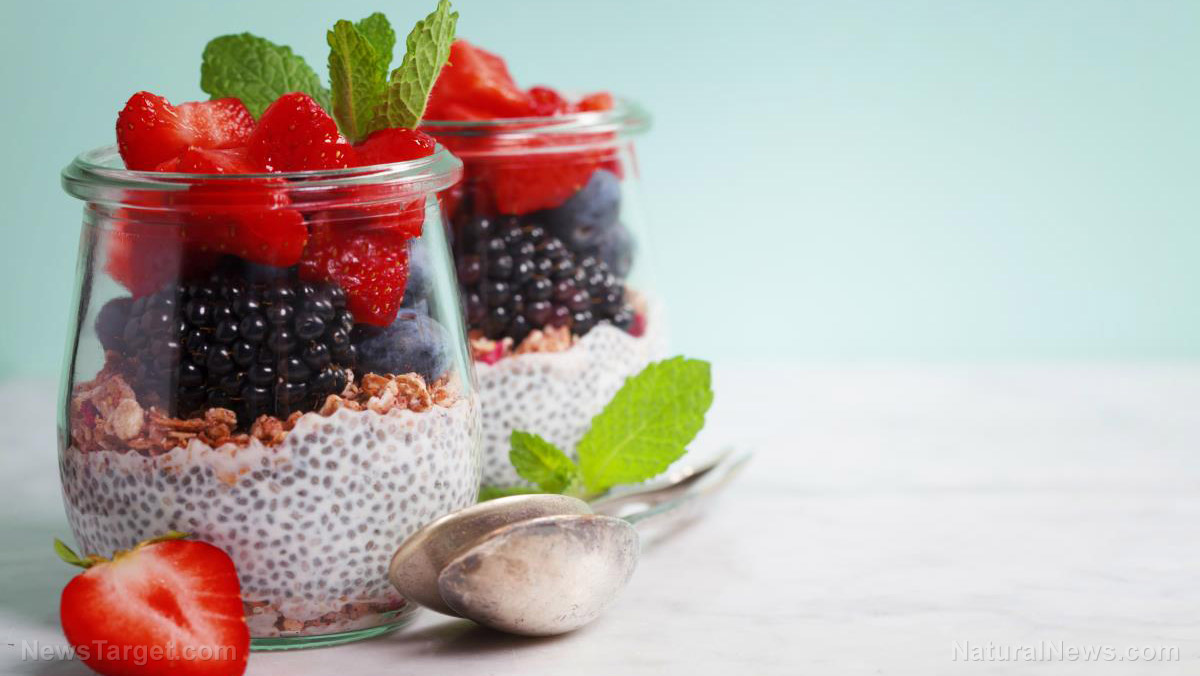Increase your antioxidant intake by adding these nutritious foods to your diet
08/06/2019 / By Zoey Sky

Nutritious foods rich in antioxidants are essential components of a well-balanced diet. But what are antioxidants and why do you need them?
Antioxidants and free radical damage
According to Cynthia Sass, a contributing nutrition editor at Health.com, antioxidants function as “little bodyguards” that protect cells from damage and prevent premature aging and disease.
Antioxidants neutralize harmful free radicals, which are molecules linked to health problems like Alzheimer’s disease, cancer, heart disease, and other conditions.
When free radicals accumulate in the body, they cause oxidative stress that may damage DNA and other important structures in your cells. Chronic oxidative stress is linked to a greater risk of developing chronic diseases like Type 2 diabetes.
You can boost your antioxidant levels by taking dietary supplements. However, health experts recommend getting antioxidants from nutritious foods such as the ones listed below.
Artichoke hearts
Artichokes are rich in magnesium, which is known for generating energy. These unusually-shaped vegetables are the most antioxidant-rich foods on this list.
Additionally, artichokes are full of dietary fiber and minerals. These nutrients help improve heart and liver health.
Artichokes also contain chlorogenic acid. Some studies suggest that chlorogenic acid’s antioxidant and anti-inflammatory benefits can help lower the risks of certain cancers, heart disease, and Type 2 diabetes.
The antioxidant content of artichokes may vary depending on how you cook them. Boiling artichokes increases their antioxidant content by eight times, while steaming can increase it by about 15 times.
However, frying artichokes can reduce their antioxidant content.
Blackberries
Most antioxidants are plant compounds called polyphenols. The polyphenols in blackberries help slow the decline of cognitive and motor skills associated with aging.
A cup of blackberries contains seven grams of fiber, which is one-third of your recommended daily intake (RDI). Blackberries are also rich in vitamin C.
Blueberries
Blueberries contain anthocyanins, antioxidants that give these berries their unique blue color. Anthocyanins help prevent the growth of cancer cells.
Blueberries are rich in magnesium and vitamins C and K that help protect against heart disease and age-related memory loss. (Related: Healing cancer with food: Some recommendations.)
Cherries
Like blueberries, cherries are also full of anthocyanins that give them their luscious red hue. Anthocyanins help lower cholesterol and minimize inflammation.
Strangely, dried sweet cherries and canned tart or sour cherries contain more antioxidants compared to sweet, fresh cherries.
Tart cherries also contain melatonin that helps regulate sleep cycles.
Cranberries
Cranberries help reduce inflammation, increase “good” HDL cholesterol, and strengthen your immune system.
The berries also contain proanthocyanidins (PACs), unique antioxidants that keep E. coli and other bacteria from sticking to the bladder walls. This helps prevent urinary tract infections (UTIs).
Dark chocolate
Antioxidants called flavonols are responsible for dark chocolate’s many health benefits. Flavonols help lower blood pressure. They can also lower your risk of developing diabetes.
When buying dark chocolate, skip highly processed variants that contain added sugar and milk since they have lower antioxidant levels.
Pecans
Eating a handful of pecans helps lower cholesterol. These nuts are rich in manganese, a mineral that has age-defying, antioxidant powers that keep your skin firm.
Pecans also contain beta-sitosterol that is essential for prostate health.
Raspberries
Like other berries, raspberries fight inflammatory conditions such as gout and arthritis. Raspberries contain fiber and polyphenols that are believed to prevent heart disease.
Additionally, raspberries are rich in antioxidants called ellagitannins that can help fight cancer.
Strawberries
Strawberries are full of vitamin C and other antioxidants that help your complexion recover from damage caused by ultraviolet (UV) rays and pollution.
Strawberries also contain folate, a B vitamin that boosts cardiovascular health. Strawberries can help whiten your teeth naturally.
Walnuts
Walnuts are rich in fiber, manganese, and protein. These nuts are also full of heart-healthy unsaturated fats.
Walnuts have alpha-linolenic acid, a type of omega-3 fatty acid that’s usually found in plants.
Follow a diet full of antioxidant-rich foods to boost your blood antioxidant levels, fight oxidative stress, and reduce the risk of various diseases.
Sources include:
Submit a correction >>
Tagged Under:
This article may contain statements that reflect the opinion of the author
RECENT NEWS & ARTICLES
COPYRIGHT © 2017 SUPER FOODS NEWS





















